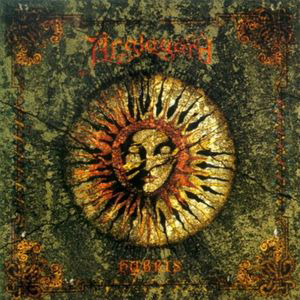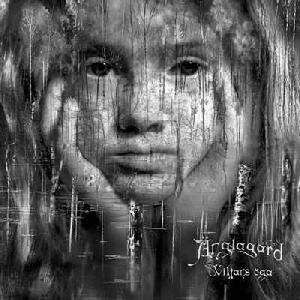
BY HASAN MURAT SÜMER (EE/IV)
hasan.sumer@ug.bilkent.edu.tr
N ÄNGLAGÅRD
In this week’s column, I will talk about one of my favorite bands, the lesser-known but beautiful ensemble Änglagård. Änglagård is a Swedish symphonic progressive rock band that was founded in 1991. Up to now, they have released three studio albums and two live albums, and played at a number of festivals. The band’s lineup has remained mostly the same, with each member being a virtuoso-level player of his/her instrument. What really interests me about them is how their style changed and progressed as they created new music.
Their first album, “Hybris,” was released in 1992. Originally, the album included four songs, each of them running longer than eight minutes. The progressive rock genre, which had its heyday in the ’70s, struggled to adapt as the ’80s arrived. Most bands eventually abandoned the style they adopted, and newly formed bands didn’t reflect the spirit of the genre very well. “Hybris” feels like it was released twenty years late. The influence of the prog bands of the ’70s is huge, with that of Genesis and King Crimson especially noticeable. The songs on the album can be very visualizable if you let your imagination flow. The overall theme of “Hybris” revolves around emotions such as excitement, joy, relaxation and ambition. Darker elements do not exist in this album; it does not get depressive or sad at all.
“Hybris” relies hugely on the use of the mellotron, which is responsible for creating the symphonic sound and provides great flexibility. Along with the virtuosity of the musicians, the mellotron allows the frequent structural changes in the songs to be performed perfectly. The importance of the guitars replaces that of the mellotron as the songs reach their climax. The flute playing is the only problem I see with the instruments. It is very good, frequently used and successful in reflecting the album’s overall theme. However, it seems like its general function is to “soften” the songs at certain points. This bothers me a little. The major problem I see in “Hybris” as a whole is a lack of originality. I don’t mean there is a plagiarism issue; it’s just that the album contributes very little to defining a signature sound for the band. It feels like they were trying to be exactly like the prog bands of the early ’70s.
Änglagård released their second studio album, “Epilog,” in 1994. This work, unlike “Hybris,” is fully instrumental. There are changes in style as well. The sound of “Epilog” is much mellower than that of “Hybris,” and it sometimes becomes dark and sad. The songs contain a lot of complex experimental passages; they are not as imaginative and flowing as the songs on “Hybris.” You need to be focused in order not to be distracted. The use of instruments is similar to that on the previous album. The mellotron still has huge importance, and the flute playing still does not completely satisfy me. Opinions on how the absence of vocals affects the album will vary from person to person. For me, it does not create much of a difference.
Änglagård got closer to defining their own sound with “Epilog,” but it wasn’t a strong enough performance to follow the great “Hybris.” It’s still good, though. I see “Epilog” as a transition between “Hybris” and their third album.
Viljans Öga
This is the reason why Änglagård is one of my favorite bands. It was released in 2012. If a lesser known and highly talented band such as Änglagård releases a studio album after 18 years, you would expect something big. “Viljans Öga” is a masterpiece of symphonic progressive rock. The style is very original; in this album, Änglagård resembles no other band (at least to the best of my knowledge).
There is so much to explore in this work. Like “Epilog,” “Viljans Öga” is exclusively instrumental. The album has four songs. The first three seem like a 40-minute classical composition, intensified by electric instruments. The mellotron is still the backbone of the symphonic sound. The flute is much more important than previously; it is the primary driver and shaper of the songs. The guitars induce every kind of emotion of the exciting type when they become dominant. More relaxed passages, which prevent the listener from tiring, are frequent. There is also a jazzy note that pops out at the listener every now and then; you can often hear the flute, electric guitar and loud bass competing with each other, and this competition offers the listener a musical euphoria.
For me, Änglagård is a symbol of musical progression, offering the listener something new at each step. This property is what makes a band interesting, respected and unlikely to be forgotten. Änglagård will probably never be hugely popular, but they will be remembered in certain music communities for a very long time. It’s almost sad that I have such a small space to write about them. Have a nice week.


